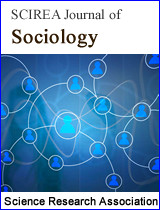The Use of Remote Control Software in Increasing Their Learning Outcomes
DOI: 10.54647/sociology84957 96 Downloads 13027 Views
Author(s)
Abstract
This study aims to describe students' perception of online-based learning with remote control software. The research method used is the descriptive method. Research instruments use questionnaires and interviews. The results of the study showed that students' perception of online-based learning with remote control software is very positive, and the use of the software provides a very significant learning experience and can improve students' learning activities and outcomes. It happens because the use of software (1) is easy to access and operationalize; (2) facilitates in the guidance of the completion of a new task for the first time, so that it is more challenging to curiosity; (3) improve learning motivation; (4) is very useful in increasing students’ self-independence learning; (5) promote a more open way of communication between lecturers and students rather than applying face-to-face learning models; (6) make it easier for students to overcome difficulties in learning the subject matter they are studying (7) is very effective because students know firsthand the existing errors and receive corrective guidance on the spot; and (8) make students are more optimistic about achieving better learning outcomes.
Keywords
perception, remote control software, lecture tasks, learning outcome
Cite this paper
Badeni Badeni, Sri Saparahayuningsih, Osa Juarsa,
The Use of Remote Control Software in Increasing Their Learning Outcomes
, SCIREA Journal of Sociology.
Volume 7, Issue 1, February 2023 | PP. 1-17.
10.54647/sociology84957
References
| [ 1 ] | Al-Dosari, H. (2011). Faculty Members and Students Perceptions of E-Learning in the English Department : A Project Evaluation Hamad Al-Dosari Department of English, King Khalid University, Abha, Saudi Arabia. Journal of Social Sciences, 7(3), 391–407. |
| [ 2 ] | Ali, K. A. G., Khalil, H. E. M., & El-Sharkawy, F. M. (2020). Impact of Online Remote Education on the Learning Process among Nursing Students. Open Journal of Nursing, 10(09), 810–830. https://doi.org/10.4236/ojn.2020.109057 |
| [ 3 ] | Almarabeh, T. (2014). Students’ perceptions of E-learning at the University of Jordan. International Journal of Emerging Technologies in Learning, 9(3), 31–35. https://doi.org/10.3991/ijet.v9i3.3347 |
| [ 4 ] | Cakrawati, L. M. (2017). Students’ Perceptions on the Use of Online Learning Platforms in EFL Classroom. English Language Teaching and Technology Journal (ELT-Tech Journal, 1(1), 22–30. |
| [ 5 ] | Creswell, J. W. (2009). Research design: qualitative, quantitative, and mixed methods approach. In Journal of Investigative Surgery (Vol. 25, Issue 5). SAGE Publications, Inc., https://doi.org/10.3109/08941939.2012.723954 |
| [ 6 ] | Dabbagh, N., & Kitsantas, A. (2012). Personal Learning Environments, social media, and self-regulated learning: A natural formula for connecting formal and informal learning. In Internet and Higher Education (Vol. 15, Issue 1, pp. 3–8). https://doi.org/10.1016/j.iheduc.2011.06.002 |
| [ 7 ] | El-Adl, A., & Alkharusi, H. (2020). Relationships between self-regulated learning strategies, learning motivation, and mathematics achievement. In Cypriot Journal of Educational Sciences (Vol. 15, Issue 1, pp. 104–111). https://doi.org/10.18844/cjes.v15i1.4461 |
| [ 8 ] | Fulton-Archer, L., Smith, M. J., Sauer, T., Small, H., & Abbott, M. (2009). Partnership for 21st Century Skills. In World Languages (pp. 1–21). http://classroom21.ncdpi.wikispaces.net/file/view/21st_century_skills_map+MATH.pdf/348667130/21st_century_skills_map MATH.pdf |
| [ 9 ] | Hamied, F. A. (2017). Research methods: A Guide for first-time researchers. In UPI PRESS. UPI Press. https://doi.org/10.5040/9781501325670.ch-004 |
| [ 10 ] | Hurlbut, A. R. (2018). Online vs. traditional learning in teacher education: a comparison of student progress. American Journal of Distance Education, 32(4), 248–266. https://doi.org/10.1080/08923647.2018.1509265 |
| [ 11 ] | Kennedy, I. G., Latham, G., & Jacinto, H. (2016). Education Skills for 21st Century Teachers. https://doi.org/10.1007/978-3-319-22608-8 |
| [ 12 ] | Khan, M. A., Vivek, Nabi, M. K., Khojah, M., & Tahir, M. (2021). Students' perception towards e-learning during a covid-19 pandemic in India: An empirical study. Sustainability (Switzerland), 13(1), 1–14. https://doi.org/10.3390/su13010057 |
| [ 13 ] | Manowong, S. (2016). Undergraduate Students’ Perceptions of Edmodo as a Supplementary Learning Tool in an EFL classroom. In Silpakorn University Journal of Social Sciences (Vol. 16, Issue 2, pp. 137–161). https://www.tci-thaijo.org/index.php/hasss/article/download/65882/53831 |
| [ 14 ] | Monique Hennink, Inge Hutter, A. B. (2020). Qualitative Research Methods. SAGE Publications Limited. |
| [ 15 ] | O. Abu Hantash, R., Abu Younis, M., & Assaf, M. (2020). Online Learning Satisfaction and Acceptance among Al-Quds University Dental Students. Creative Education, 11(10), 2002–2013. https://doi.org/10.4236/ce.2020.1110146 |
| [ 16 ] | Ozcinar, Z., Sakhieva, R. G., Pozharskaya, E. L., Popova, O. V., Melnik, M. V., & Matvienko, V. V. (2020). Student’s Perception of Web 2.0 Tools and Educational Applications. International Journal of Emerging Technologies in Learning (IJET), 15(23), 220. https://doi.org/10.3991/ijet.v15i23.19065 |
| [ 17 ] | Raja, R., & Nagasubramani, P. C. (2018). Impact of modern technology in education. Journal of Applied and Advanced Research, 3(S1), 33. https://doi.org/10.21839/jaar.2018.v3is1.165 |
| [ 18 ] | Suherdi, D. (2012). 21St Century English Teacher Education: An Indonesian Perspective. 25. |
| [ 19 ] | Sukhbaatar, O., Choimaa, L., & Usagawa, T. (2018). Students’ Perception and Experience of Massive Open Online Courses in Mongolia. Creative Education, 09(12), 1818–1828. https://doi.org/10.4236/ce.2018.912132 |
| [ 20 ] | Vitoria, L., Mislinawati, M., & Nurmasyitah, N. (2018). Students’ perceptions on the implementation of e-learning: Helpful or unhelpful? Journal of Physics: Conference Series, 1088. https://doi.org/10.1088/1742-6596/1088/1/012058 |
| [ 21 ] | Yehya, F. (2020). Creative thinking skills in the Lebanese schools from secondary physics teachers’ perspectives. In International Journal of Learning and Teaching (Vol. 12, Issue 2, pp. 115–130). https://doi.org/10.18844/ijlt.v12i2.4718 |
| [ 22 ] | Zaid, M. S., & Rabbah, A. (2019). Code-switching: The case of ‘Israeli Arab’ students at the Arab American University-Palestine. In Global Journal of Foreign Language Teaching (Vol. 9, Issue 4, pp. 203–214). https://doi.org/10.18844/gjflt.v9i4.4325 |
| [ 23 ] | Zayapragassarazan, Z. (2020). COVID-19: Strategies for Online Engagement of Remote Learners. F1000Research, 246, 1–11. https://doi.org/10.7490/F1000RESEARCH.1117835.1 |

